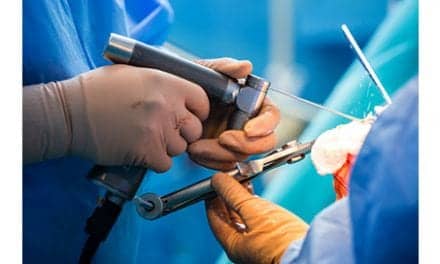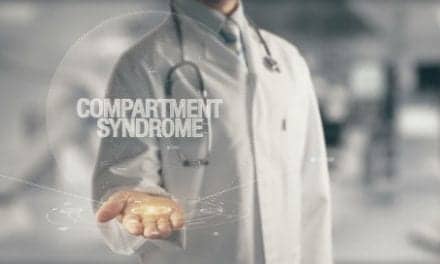The Cell Bandage, a “living bandage” made from stem cells to treat meniscal tears, has recently been tested for reportedly the first time in humans.
Developed by a company called Azellon and produced by the Advanced Therapies Unit at the NHS Blood & Transplant facility in Speke, Liverpool, the Cell Bandage is designed to help the meniscal tear to repair itself by encouraging cell growth in the affected tissue
Researchers from the Universities of Liverpool and Bristol tested a prototype of the Cell Bandage in five patients, between the ages of 18 and 45, with white-zone meniscal tears. It was implanted into the patients at Southmead Hospital in Bristol, under the supervision of Professor Ashley Blom, Head of Orthopaedic Surgery at the University of Bristol.
Results from the study have been published in the journal Stem Cells Translational Medicine, according to a media release from University of Liverpool.
“The Cell Bandage offers an exciting potential new treatment option for surgeons that could particularly benefit younger patients and athletes by reducing the likelihood of early onset osteoarthritis after meniscectomy,” Blom comments in the release.
The procedure involved taking stem cells, harvested from the patient’s own bone marrow, which were then grown for 2 weeks before being seeded onto a membrane scaffold that helps to deliver the cells into the injured site. The manufactured Cell Bandage was then surgically implanted into the middle of the tear and the cartilage was sewn up around the bandage to keep it in place.
All five patients had an intact meniscus 12 months post implantation. By 24 months, three of the five patients retained an intact meniscus and had returned to normal knee functionality while the other two patients required surgical removal of the damaged meniscus due to a new tear or return of symptoms, the release explains.
“The Cell Bandage trial results are very encouraging and offer a potential alternative to surgical removal that will repair the damaged tissue and restore full knee function,” says Professor Anthony Hollander, Chair of Stem Cell Biology at the University of Liverpool and Founder and Chief Scientific Officer of Azellon, in the release.
“We are currently developing an enhanced version of the Cell Bandage using donor stem cells, which will reduce the cost of the procedure and remove the need for two operations,” he adds.
[Source(s): University of Liverpool, Science Daily]





